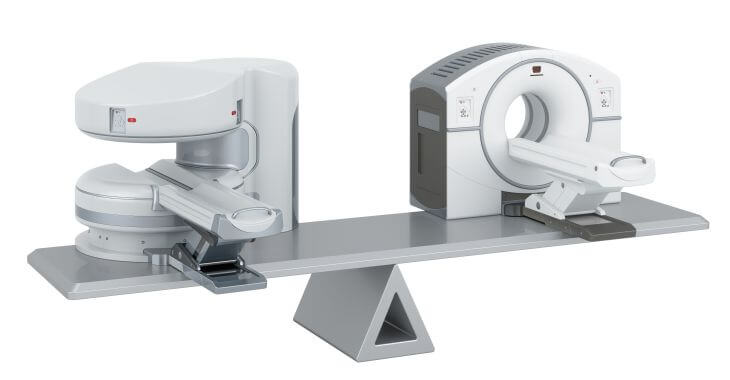Bone Mineral Density Test
A bone mineral density (BMD) test is used to measure the minerals in a person’s bones using a special X-ray or CT scan. The information gathered through this test is used to estimate the strength of a person’s bones. Everyone loses bone mass as s/he ages. Bones become thinner because the existing bone that all people have breaks down faster than the body can reproduce bone matter. As this occurs, our bones lose calcium and other important minerals and become weaker. The weaker a bone is, the higher chance it has of breaking.
The most accurate method of measuring a person’s bone mineral density with through dual energy X-ray absorptiometry. This test uses two different X-ray beams to estimate the bone density in the spine and hip. Strong bones allow less of the X-ray beams to pass through them, where as the weaker a bone is the more beams pass through. The amount of each X-ray beam that is allowed to pass through are measured and compared to one another. This test uses very low doses of radiation, and it is a fast and painless procedure.
Women over the age of 65 and men over the age of 70 are encouraged to have a bone density scan. The aging process not only affects bone loss, but it also makes it harder for a person to recover from a bone fracture as they get older. A person’s doctor can request that a patient have a bone mineral density test performed – either at a hospital or a specialized outpatient diagnostic imagine center. By understanding your risk for bone fractures, you can help to promote physical health and help to off set any osteoporosis that has become apparent in your bones. Your bones were meant to last you a lifetime. A BMD test can let you know how healthy and strong they are.
Posted on behalf of Diagnostic Radiology
The information provided on this website, including text, graphics, images, and other materials, is intended solely for informational purposes and should not be used as a substitute for professional medical advice, diagnosis, or treatment.

)